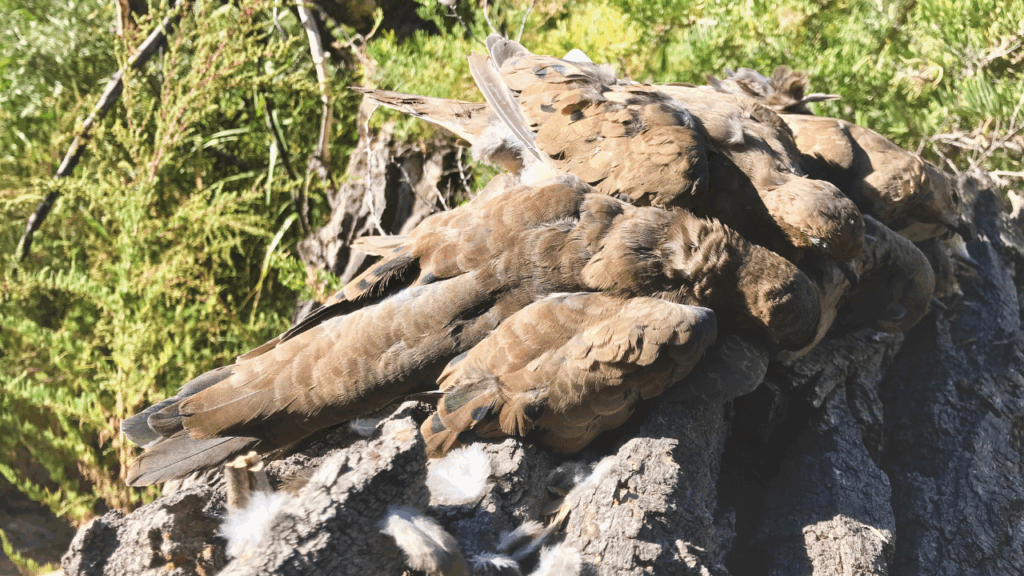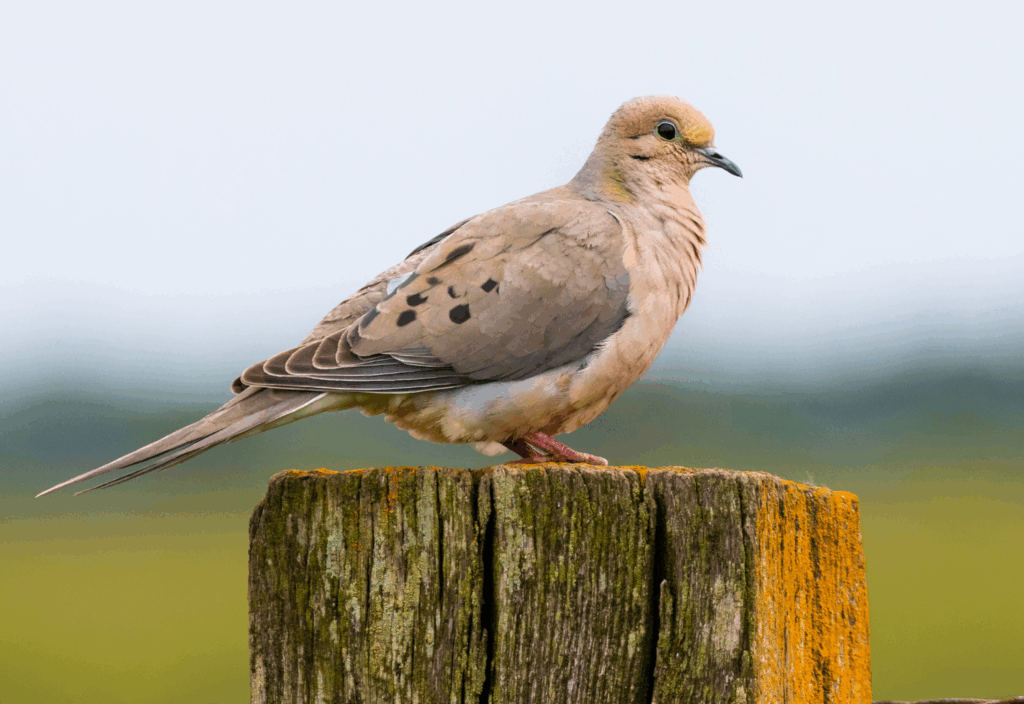Alabama Dove License: What do you need to hunt Dove in Alabama?
To hunt dove in Alabama, you’ll need a valid hunting license, and in some cases, a WMA permit and hunter education certification. Use the tool below to find out exactly what applies to you.
Use the toggles below to find out what you need to hunt dove in Alabama

Hunting dove in Alabama is a popular outdoor activity that requires proper licensing and adherence to state regulations. Understanding the specific license requirements is essential for both residents and nonresidents to ensure a legal and responsible hunting experience. This guide provides detailed information on the necessary permits, season dates, bag limits, and other important considerations for hunting dove in Alabama.
Do You Need a License to Hunt Dove in Alabama?
To hunt Dove in Alabama, you’ll need a valid hunting license issued by the Alabama Department of Conservation and Natural Resources (ADCNR) as well as a HIP registration. Both residents and nonresidents are required to obtain this license before participating in dove hunting activities within the state.
In addition to the general hunting license (or small game hunting license), and HIP registration, there are no separate species-specific permits required exclusively for dove hunting. However, hunters must comply with all state and federal regulations related to migratory bird hunting.
Hunter education is mandatory for certain age groups before purchasing a hunting license. Specifically, individuals born after September 1, 1969, must complete a hunter education course approved by the state to be eligible for a license.
- Purchase a valid Alabama hunting license from the ADCNR.
- Complete the required hunter education course if born after September 1, 1969.
- Ensure compliance with all state and federal migratory bird hunting regulations.

Season Dates for Dove in Alabama
The dove hunting season in Alabama typically begins in early September and extends into January, with multiple segments depending on the hunting zone. The season is divided into two segments: the early season and the late season, allowing hunters multiple opportunities to pursue doves.
Method of take restrictions apply during the season, with shotguns being the primary legal firearm for dove hunting. Archery hunting for doves is generally not permitted under state regulations.
For the most accurate and up-to-date season dates, hunters should consult the official Alabama Department of Conservation and Natural Resources website, which provides detailed calendars and any changes to the season schedule.
Bag Limits and Legal Hunting Methods
Alabama enforces a daily bag limit of 15 doves per hunter, which includes mourning doves and white-winged doves combined. This limit is consistent with federal regulations governing migratory bird hunting.
Legal hunting methods include the use of shotguns with appropriately sized shot (typically size 7, 7.5, or 8). Hunters may use lead shot when hunting doves, except when hunting areas specifically require non-toxic shot (such as state or federal wetlands).
Other legal considerations include hunting only during designated hours and respecting private property boundaries. It is essential to review the official state regulations regularly, as rules may be updated to reflect conservation needs.
For comprehensive details on bag limits and legal methods, visit the Alabama Department of Conservation and Natural Resources website.
Where Can You Hunt Dove in Alabama?
Dove hunting opportunities in Alabama are available on various public lands, including Wildlife Management Areas (WMAs) managed by the state. These areas provide accessible hunting grounds with established rules and facilities to support hunters.
Hunters may also pursue doves on private lands, but only with explicit permission from the landowner. Respecting private property rights is crucial to maintaining good relationships and ensuring continued access.
The AL DCNR offers detailed maps and tools to locate public hunting lands across Alabama. These resources help hunters plan their trips and identify suitable locations for dove hunting within the state.
Meet Hunter Education Requirements
Alabama requires hunter education certification for individuals born after September 1, 1969, as a prerequisite for purchasing a hunting license. This education ensures hunters understand safety protocols, ethical hunting practices, and state regulations.
The hunter education course can be completed online or in-person through approved providers. Successful completion results in a certification card that must be presented when applying for a hunting license.
There are exceptions for hunters under a certain age who are supervised by a licensed adult. However, it is recommended that all hunters complete the education course to promote safe and responsible hunting.
For more information and to access hunter education resources, visit https://recademics.com/hunting/Alabama.
How to Buy an Alabama Hunting License
You can purchase your Alabama hunting license for Dove through the Alabama Department of Conservation and Natural Resources. The process is straightforward and offers multiple options to accommodate different preferences.
Online purchases are available through the official ADCNR website, allowing hunters to buy and print licenses conveniently from home. This method is efficient and provides immediate access to the necessary documentation.
Alternatively, licenses can be obtained in person at authorized vendors, including sporting goods stores, license offices, and some retail outlets throughout Alabama. This option is ideal for those who prefer face-to-face service or need assistance.
For detailed step-by-step instructions and additional information on obtaining a hunting license in Alabama, visit How to get a Hunting License in Alabama.
Frequently Asked Questions
Do I need a special permit to hunt Dove in Alabama?
A standard Alabama hunting license is sufficient to hunt Dove. However, you must register with the Harvest Information Program (HIP) before hunting.
Are nonresidents required to have a hunting license to hunt Dove in Alabama?
Yes, nonresidents must obtain a valid Alabama hunting license to legally hunt Dove in the state.
Is hunter education mandatory to purchase a Dove hunting license in Alabama?
Hunter education is required for individuals born after September 1, 1969, before they can purchase a hunting license.
What is the daily bag limit for Dove in Alabama?
The daily bag limit for Dove is 15 birds per hunter, including mourning and white-winged doves combined.
Where can I find official season dates for Dove hunting in Alabama?
Official season dates are published annually by the Alabama Department of Conservation and Natural Resources and can be found on their website.
Hunting
- Alabama
- Alaska
- Arizona
- Arkansas
- California
- Colorado
- Connecticut
- Delaware
- Florida
- Georgia
- Hawaii
- Idaho
- Illinois
- Indiana
- Iowa
- Kansas
- Kentucky
- Louisiana
- Maine
- Maryland
- Massachusetts
- Michigan
- Minnesota
- Mississippi
- Missouri
- Montana
- Nebraska
- Nevada
- New Hampshire
- New Jersey
- New Mexico
- New York
- North Carolina
- North Dakota
- Ohio
- Oklahoma
- Oregon
- Pennsylvania
- Rhode Island
- South Carolina
- South Dakota
- Tennessee
- Texas
- Utah
- Vermont
- Virginia
- Washington
- West Virginia
- Wisconsin
- Wyoming
